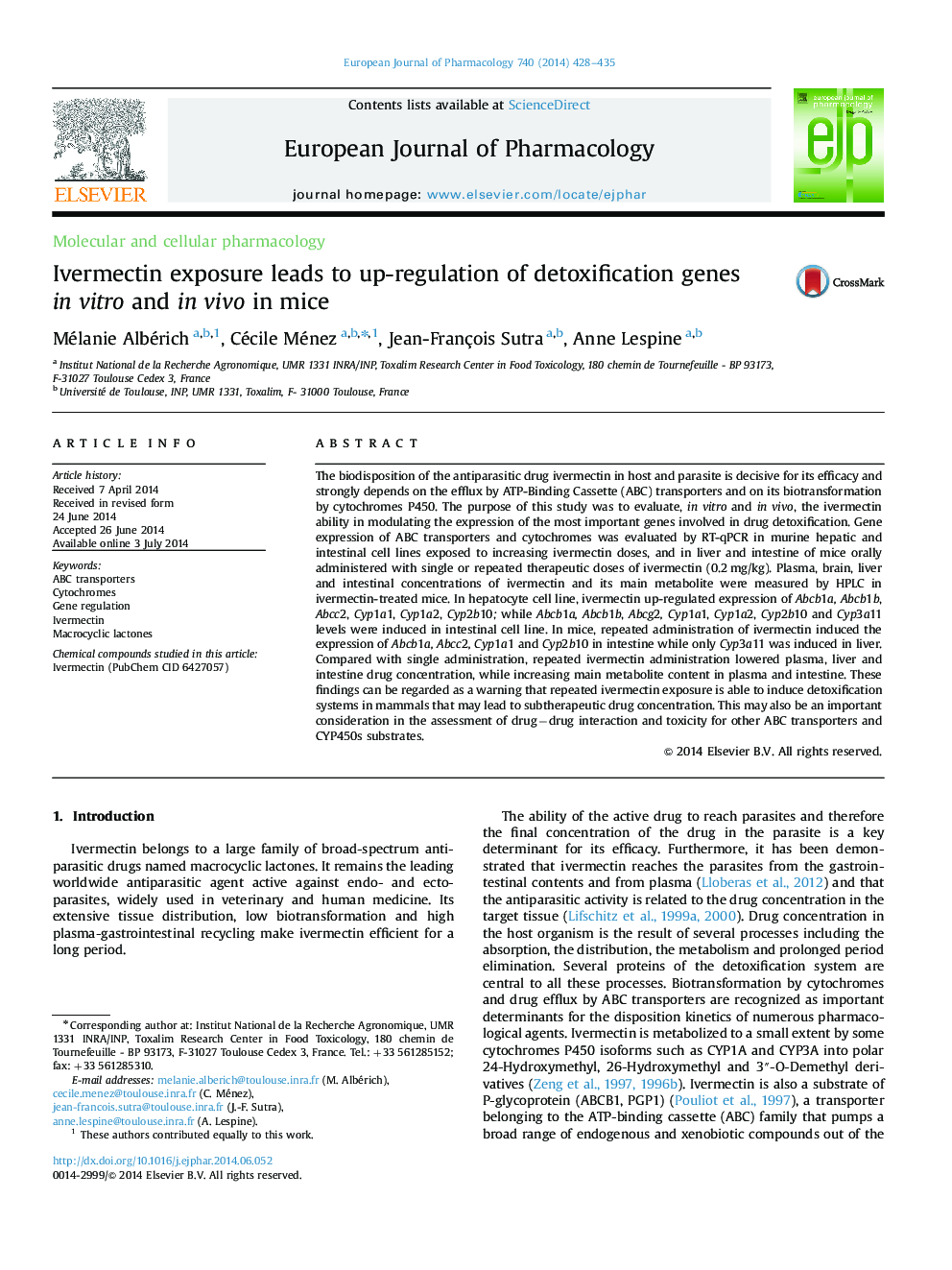| Article ID | Journal | Published Year | Pages | File Type |
|---|---|---|---|---|
| 2531613 | European Journal of Pharmacology | 2014 | 8 Pages |
The biodisposition of the antiparasitic drug ivermectin in host and parasite is decisive for its efficacy and strongly depends on the efflux by ATP-Binding Cassette (ABC) transporters and on its biotransformation by cytochromes P450. The purpose of this study was to evaluate, in vitro and in vivo, the ivermectin ability in modulating the expression of the most important genes involved in drug detoxification. Gene expression of ABC transporters and cytochromes was evaluated by RT-qPCR in murine hepatic and intestinal cell lines exposed to increasing ivermectin doses, and in liver and intestine of mice orally administered with single or repeated therapeutic doses of ivermectin (0.2 mg/kg). Plasma, brain, liver and intestinal concentrations of ivermectin and its main metabolite were measured by HPLC in ivermectin-treated mice. In hepatocyte cell line, ivermectin up-regulated expression of Abcb1a, Abcb1b, Abcc2, Cyp1a1, Cyp1a2, Cyp2b10; while Abcb1a, Abcb1b, Abcg2, Cyp1a1, Cyp1a2, Cyp2b10 and Cyp3a11 levels were induced in intestinal cell line. In mice, repeated administration of ivermectin induced the expression of Abcb1a, Abcc2, Cyp1a1 and Cyp2b10 in intestine while only Cyp3a11 was induced in liver. Compared with single administration, repeated ivermectin administration lowered plasma, liver and intestine drug concentration, while increasing main metabolite content in plasma and intestine. These findings can be regarded as a warning that repeated ivermectin exposure is able to induce detoxification systems in mammals that may lead to subtherapeutic drug concentration. This may also be an important consideration in the assessment of drug−drug interaction and toxicity for other ABC transporters and CYP450s substrates.
